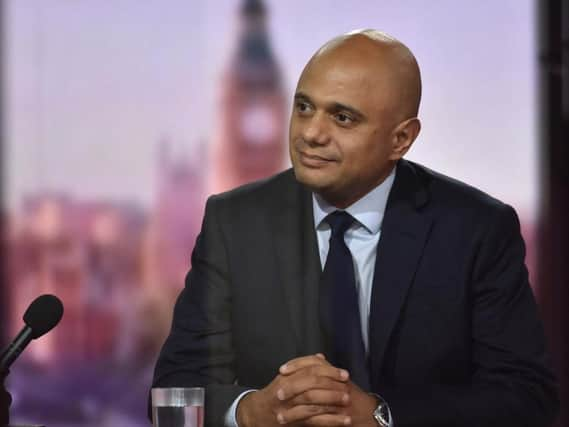Health secretary says 12-15s will be offered Covid vaccine


The move comes after the chief medical officers of the four UK nations advised younger teenagers should be offered the Pfizer/BioNTech jab.
The decision takes into account the "extremely powerful" evidence on the impact of the pandemic on children's education, as well as the risks to their mental health from missing school.
Advertisement
Hide AdAdvertisement
Hide AdMr Javid said the NHS in England would now begin rolling out the vaccine with the same urgency that has characterised the rest of the programme.
"I have accepted the recommendation from the chief medical officers to expand vaccination to those aged 12 to 15 - protecting young people from catching Covid-19, reducing transmission in schools and keeping pupils in the classroom," he said.
"Our outstanding NHS stands ready to move forward with rolling out the vaccine to this group with the same sense of urgency we've had at every point in our vaccination programme."
Formal announcements are expected from the devolved administrations for Scotland, Wales and Northern Ireland.
Advertisement
Hide AdAdvertisement
Hide AdIf approved throughout the UK, three million British children could be eligible for the jab, with vaccinations expected to be given through schools.
The decision comes despite the Joint Committee on Vaccination and Immunisation (JCVI) deciding not to recommend mass vaccination of 12 to 15-year-olds.
The JCVI had said Covid-19 presents a very low risk for healthy children and vaccination would only offer a marginal benefit.
But they suggested that the wider issues, such as education, should be taken into consideration and examined by CMOs.
Advertisement
Hide AdAdvertisement
Hide AdAt a Downing Street press conference, Professor Wei Shen Lim, from the JCVI, said there was "no conflict" between the advice provided by the JCVI and that from the CMOs, adding that the JCVI had looked at jabs from a health perspective.
England's chief medical officer Professor Chris Whitty said it had been a "difficult decision" regarding vaccinating children but CMOs would not be recommending the jabs "unless we felt that benefit exceeded risk".
He added: "In a sense, what we're not trying to do is say to children 'you must, must, must, must, must' but what we're saying is that we think on balance the benefits both at an individual level and in terms of wider indirect benefits to education and through that to public health are in favour, otherwise we would not be making this recommendation."
He agreed that the CMO advice was "not in conflict" with that from the JCVI, saying it was "very much in line" with it but had also looked at issues such as education. He added there were "no plans at the moment" to look at vaccinating under-12s.
In their advice to the Government, the UK's CMOs said they were recommending vaccines on "public health grounds" and it was "likely vaccination will help reduce transmission of Covid-19 in schools".